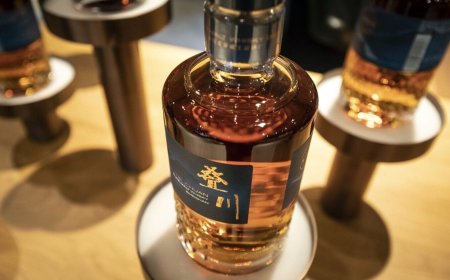Nifty Pharma Index Falls 1.8% Amid Trump Tariff Concerns; Aurobindo, Cipla, Lupin Decline
Nifty Pharma Index slumped 1.8% as Donald Trump’s potential tariff policy stirs fears across Indian pharma stocks. Aurobindo, Cipla, Lupin among top losers. Here’s what’s driving the selloff.

Nifty Pharma Index Dips 1.8% on Trump Tariff Concerns: Aurobindo, Cipla, Lupin Among
Key Losers
Introduction: Pharma Caught in Crossfire
The Indian pharmaceutical sector faced sharp headwinds on May 6, 2025, as the Nifty Pharma Index plunged 1.8%, weighed down by concerns of renewed tariff policies by former U.S. President Donald Trump, who is gaining ground in his bid for the White House in 2025.
The speculation around higher import tariffs on generic drugs and raw materials sourced from India and China triggered panic selling across frontline pharma counters. Aurobindo Pharma, Cipla, Lupin, and Sun Pharma were among the top losers, dragging the sector down sharply.
The market, already sensitive to global cues, was quick to react to what could become a serious headwind for Indian pharma exporters, particularly those heavily reliant on the U.S. market — a segment that contributes up to 40% of revenues for several Indian drugmakers.
What Triggered the Slide: Trump’s Tariff Echoes Return
A news report from a U.S. financial daily cited sources close to Donald Trump’s 2025 campaign as saying that if elected, he would seek to restructure pharmaceutical import dependencies, particularly from China and India, and impose higher tariffs to incentivize domestic manufacturing.
Though no formal proposal has been unveiled, the very possibility of protectionist trade policies stirred unease, especially among Indian pharma companies that were already navigating pricing pressure, FDA scrutiny, and rising input costs.
This reaction is reminiscent of 2018–19, when Trump's first presidency involved threats of import duties and regulatory tightening on overseas drug suppliers.
Market Reaction: Pharma Stocks in the Red
Nifty Pharma Index: Down 1.8%
The index fell to 15,620 by mid-session from a previous close of 15,910, underperforming other sectoral indices. Here’s a snapshot of key losers:
| Stock | % Change | Key Trigger |
|---|---|---|
| Aurobindo Pharma | -4.2% | High U.S. exposure, vulnerable to tariffs |
| Cipla | -3.8% | Significant U.S. generic pipeline |
| Lupin | -3.1% | Large U.S. revenue share |
| Sun Pharma | -2.4% | Market leader but U.S.-focused |
| Dr. Reddy’s | -1.9% | Broad exposure, relatively insulated |
The slide came with elevated volumes, suggesting institutional selling or algorithm-driven exits. Some traders suggested that global ETFs may have pulled back from pharma-heavy allocations in Indian indices.
Why U.S. Policy Still Moves Indian Pharma
Indian pharma is among the largest generic drug exporters to the U.S., which remains its single biggest market, accounting for nearly $12 billion in annual exports. For companies like Aurobindo Pharma and Lupin, up to 50–60% of total revenues are derived from U.S. operations.
The concerns around a potential second Trump presidency include:
-
Higher tariffs on imported drugs
-
Local sourcing norms for bulk drugs
-
FDA tightening and stricter approval norms
-
Pressure to reduce prices for Medicare and Medicaid drugs
If these policies are even partially implemented, margins for Indian drugmakers could shrink, and investment into U.S. facilities may need to increase.
Company-Wise Breakdown: Impact Assessment
1. Aurobindo Pharma
-
U.S. accounts for over 45% of revenue
-
High reliance on oral solids — a competitive and commoditized segment
-
Any import duty can erode margins significantly
-
The stock fell 4.2% to ₹860
2. Cipla
-
Known for complex generics and respiratory drugs in the U.S.
-
Has been expanding U.S. injectable portfolio
-
Worries around regulatory hurdles and pricing pressure
-
Fell nearly 3.8% to ₹1,215
3. Lupin
-
Recently received several U.S. FDA approvals
-
High dependency on U.S. market, especially for niche launches
-
Declined 3.1% to ₹1,090
4. Sun Pharma
-
Largest Indian pharma company, diversified across markets
-
Though strong, its U.S. revenue base is vulnerable
-
Declined 2.4% to ₹1,480
5. Dr. Reddy’s
-
Better diversification (Russia, Europe, India), hence lesser impact
-
Marginal decline of 1.9% to ₹6,040
Analyst Take: Panic or Prudence?
Market experts are divided on whether the selloff is reactionary or justified. While some argue that Trump’s campaign rhetoric doesn’t always translate into policy, others believe investors have little choice but to price in geopolitical risks early.
“We’ve seen Trump float aggressive trade ideas before. The fear is not just tariffs — it’s the uncertainty that comes with such global policy unpredictability.”
— Anil Malhotra, Pharma Analyst, Prudent Investments
On the other hand, some strategists advise buying the dip, especially in fundamentally strong names.
“India’s pharma edge is undeniable. Even if the U.S. tightens rules, Indian players will adapt — either by local manufacturing or strategic acquisitions in the U.S.”
— Ritu Shah, Head of Research, Elara Capital
Historical Context: What Happened in 2018?
The last time Trump floated such trade ideas in 2018, the Nifty Pharma Index fell over 7% in a week. However, many of those concerns never materialized into lasting policy, and the sector gradually regained strength as demand continued.
The FDA’s dependence on Indian generics, especially for essential drugs, and India’s cost advantage proved to be significant buffers.
Investor Strategy: What Should You Do?
If you hold pharma stocks or are considering them, here's what to weigh:
Short-Term:
-
Expect volatility due to news flow from U.S. elections
-
Watch for company-specific responses on U.S. strategy
-
Be cautious around midcaps with high U.S. exposure
Medium to Long-Term:
-
Fundamentals remain strong for companies like Sun Pharma, Dr. Reddy’s, and Cipla
-
U.S. dependence is a risk — look for diversification
-
New growth areas like biosimilars, specialty drugs, and domestic expansion are positive signs
🇮🇳 India Domestic Pharma Demand Still Intact
It’s important to note that while U.S. concerns are significant, India’s domestic pharma market continues to grow at 9–11% annually, driven by:
-
Aging population
-
Rising chronic disease burden
-
Government healthcare schemes
-
Growth in diagnostics and OTC segments
Hence, companies with strong domestic brands and expanding product portfolios will remain resilient.
Regulatory Watch
Investors should track:
-
Any official comment from Indian government or pharma regulators
-
U.S. FDA updates or policy notes from Trump’s campaign
-
Statements from Indian pharma CEOs or Nifty Pharma constituents
Knee-Jerk or a Warning Sign?
The sharp fall in the Nifty Pharma Index reminds investors how quickly global political rhetoric can influence Indian stocks, particularly sectors with high external dependence. While the Trump tariff threat is speculative at this stage, it’s a clear signal that markets will remain volatile in the run-up to the U.S. 2025 presidential elections.
That said, Indian pharma has historically proven its resilience, adaptability, and relevance on the global stage. This could just be a temporary hiccup or the beginning of a phase of recalibration. Either way, it pays to stay informed, watch the policy space closely, and stick with companies that balance global ambition with domestic strength.
Quick Recap
-
Nifty Pharma Index down 1.8% amid U.S. tariff fears
-
Aurobindo, Cipla, Lupin, and Sun Pharma lead the decline
-
Triggered by speculation of Trump’s 2025 policy against pharma imports
-
Indian companies vulnerable due to high U.S. revenue dependence
-
Experts suggest watchful optimism, not panic
What's Your Reaction?
 Like
0
Like
0
 Dislike
0
Dislike
0
 Love
0
Love
0
 Funny
0
Funny
0
 Angry
0
Angry
0
 Sad
0
Sad
0
 Wow
0
Wow
0












































































